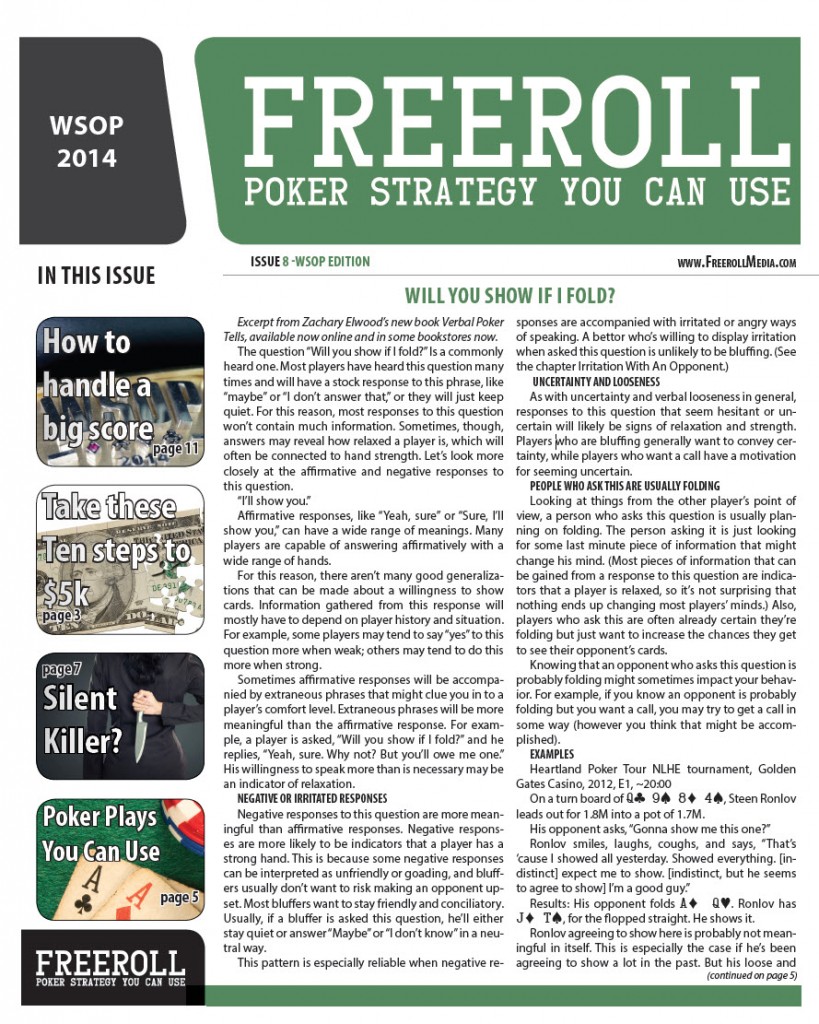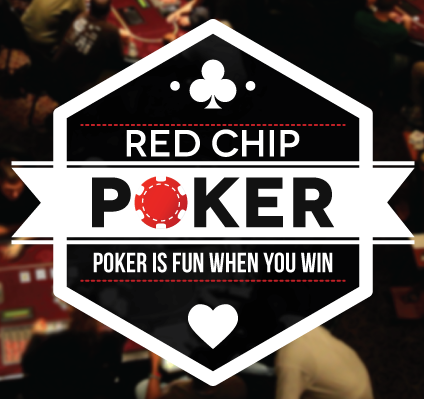Poker Is A Skill: Stop Losing Part 6: Position
- By Paul Hoppe
- June 8, 2014
- Comments Off on Poker Is A Skill: Stop Losing Part 6: Position
Are you happy with your poker results? If your answer is “yes,” that’s awesome. Go you! Check out some of the more advanced articles by my fellow writers in The Freeroll. But if your answer is “no,” then don’t despair. You’re in the right place. I’ll show you how to correct simple mistakes and get on your way toward better poker results.
Start From A Position Of Power
The first decision you make in a hand of poker will often be the most important one. To wit: “You’ve gotta know when to hold ‘em, know when to fold ‘em.” Getting involved with a strong hand might be elementary, but knowing what to do with a weak hand can be a mystery. Folding a weak hand in a bad position may prevent a cascade of bad decisions on future streets, while playing some weaker hands at the right times may allow you to squeeze extra profit out of good situations.
If you want to make money at poker, you must require at least one of two things in order to get involved in a pot:
- A good hand
- A good situation
A Good Hand
As stated, a strong hand almost plays itself. You don’t need me to tell you that you should always play pocket aces in holdem (with the exception of some bizarre tournament situations – let’s not talk about that). Other hands like pocket kings, queens, and ace-king should almost always be played as well.
“Good hands” include pocket pairs, big aces (like ace-king, ace-queen and ace-jack), suited broadways (any two suited cards higher than a nine), and suited connectors (like ten-nine down through seven-six). For the right price, you should play most of these hands most of the time.
But what do you do with pocket queens or ace-king when a tight player raises, another tight player re-raises, and the tightest player on the planet moves all-in? You fold. This takes us back to “Stop Losing Part 2: Understand Relative Strength.” Your pocket queens turn into pocket crap when your opponent definitely has aces or kings. The strength of your hand is relative to the strength of your opponent’s range. The strength of your hand depends on the situation.
A Good Situation
Some good situations require skill, judgment, and perception to identify. Let’s focus on an easy one.
You’re on the button, the blinds are two of the tightest players you’ve ever seen, and everyone else at the table has folded. In this situation, you needn’t bother to even look at your cards. You’re in a great situation. How do I love this situation? Let me count the ways:
- By raising, you will win the blinds a huge percentage of the time. That’s like free money.
- If one or both of the blinds see the flop, you will be in position. That’s good. More on this in a moment.
- When your very tight opponents see the flop, it will be easy to read them since their ranges are so tight and predictable. Their strong ranges will make it harder for you to win with a weak hand, but it will be easier for you to fold or continue with confidence. You’ll have less uncertainty about your opponents’ ranges.
Position
There were three things that made the last situation great, but position was by far the most important. In fact, it’s one of the most important concepts in poker.
When we say that you “have position” or that you are “in position,” we’re saying that you are last to act. While the blinds get to act last before the flop, they have to act first on every other street. When you’re on the button, you always get to see what your opponents do before deciding what action you want to take. That’s power. That’s position.
On the button, you can play many hands before the flop. You know that you’ll have a big advantage after the flop, so your cards don’t need to be as strong. Unless the blinds are super aggressive, you can play any pair, any ace, any two suited cards, any two cards higher than a nine, and any connected cards seven-six and higher. Strong players in the blinds should encourage you to tighten up (i.e. play fewer hands) and weak or tight players in the blinds allow you to loosen up (i.e. play some even weaker hands).
If you’re in the cutoff (i.e. the seat to the right of the button), you’ve got the second best position. The button has position on you, but if this player folds before the flop, it’s like you’ve stolen the button. You can’t play as many hands in the cutoff as you can on the button, but you can still play a lot. Exactly how many you should play depends on the tendencies of the button and the blinds. Weak players let you play more, and strong players make you play fewer.
As you get further and further away from the button, you need to tighten up more and more. There are two reasons for this. The first is that you become less likely to have position after the flop. So you’re more likely to be acting with less information than your opponent will have after you bet or check. The second reason is that there are more players to act behind you before the flop. This increases the chances of someone picking up a big hand and re-raising you.
Specific Guidelines
This article has contained only general guidelines so far. If you’d like more specific guidelines, check out my ebooklet, White Chip Poker, available on Leanpub.com. It has starting hand guidelines that will keep you out of trouble while allowing you to maximize your opportunities.
The Importance Of Discipline
We talked about understanding variance in the last article. Bad variance can often lead to tilt and tilt can lead to losing lots of money fast. One of the easiest ways to tilt off your stack is to get involved in too many hands. If you can make your preflop play automatic and conservative as you build up your game, you can save yourself a lot of money and heartache. Consistently folding those hopeless hands will keep you out of a lot of trouble. Starting from a position of power makes all of your decisions easier and more profitable.


